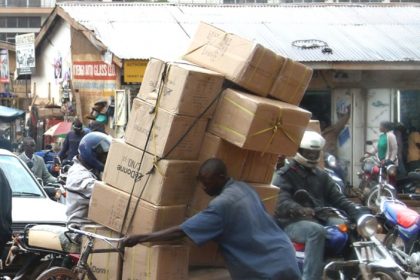Global beverage prices reach 13-year high amid concerns over supplies
 Arabica prices are expected to soften in 2024, followed by overall stability in 2025. Conversely, Robusta prices are anticipated to remain high in 2024, before they decrease considerably in 2025.
Arabica prices are expected to soften in 2024, followed by overall stability in 2025. Conversely, Robusta prices are anticipated to remain high in 2024, before they decrease considerably in 2025.
The World Bank’s beverage price index reached a 13-year high in February 2024 month-on-month (m/m), driven by surging prices of cocoa and Robusta coffee. The index, which averaged slightly higher in 2023 compared to 2022, is expected to weaken in 2025 as additional supplies of coffee and cocoa reach the market.
Robusta coffee prices surged to their highest point in three decades in February 2024, marking a four percent rise from the previous month, driven by supply concerns.
Meanwhile, Arabica prices increased by three percent in February (m/m) reflecting the tightness of this market as well. The global coffee market anticipates a significant increase in supplies, with an estimated increase of nearly seven million bags for the current season, mainly from Arabica producers like Brazil, Colombia, and Ethiopia, which dominate the Arabica market.
However, challenges loom for the Robusta market as Indonesia and Vietnam, key Robusta suppliers, grapple with poor crop yields, leading to potential shortages. On the demand side, consumption is projected to reach record levels during the ongoing, 2023-24, season.
Arabica prices are expected to soften in 2024, followed by overall stability in 2025. Conversely, Robusta prices are anticipated to remain high in 2024, before they decrease considerably in 2025.
Cocoa prices continued their upward climb, gaining 26 percent in February (m/m), building on the 13 percent gain in 2023Q4 (q/q). Prices averaged 37 percent higher in 2023 compared to the previous year.
The surge has been fueled by lower-than-expected production in Côte d’Ivoire, the world’s largest supplier, attributed to heavy rains linked to El Niño. Additionally, robust grindings—a barometer of demand—earlier in the year supported the price boom.
Global cocoa availability for the upcoming season is expected to improve, especially in Côte d’Ivoire, which is reported to have taken several steps to address ongoing supply issues, including a halt on 2024-25 forward sales and a restriction on cocoa processors keeping stocks beyond set limits. In view of increased global supplies, cocoa prices are expected to ease in 2025.
Tea prices increased only marginally in February 2024 (m/m), largely influenced by the continuous drop at the Kolkata auction (-10 percent). The tea price index hovers 4 percent lower than it did a year ago. The decline reflects ample production and exports from major producers and exporters, such as Sri Lanka and Bangladesh, two key South Asian suppliers.
Concurrently subdued demand from leading importers, notably Iran, further contributed to the downturn. Following a 10 percent decline in 2023, tea prices are expected to stabilize in 2024 and 2025 as supplies in South Asia, particularly Sri Lanka, recover.

 Chinese brands strengthen hold on African smart phone market in 2023
Chinese brands strengthen hold on African smart phone market in 2023
 TradeMark Africa introduces new App to limit EAC trade barriers
TradeMark Africa introduces new App to limit EAC trade barriers
 Stanbic Bank Uganda marketing executive awarded African prize
Stanbic Bank Uganda marketing executive awarded African prize
 Increased regional trade hindered by NTBs as EAC bloc aims for single currency
Increased regional trade hindered by NTBs as EAC bloc aims for single currency
 New customer orders help drive private sector output during May
New customer orders help drive private sector output during May
 Equity Uganda maintaining positive outlook despite dip in 2022 profits
Equity Uganda maintaining positive outlook despite dip in 2022 profits
